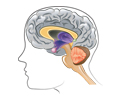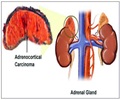
Robert Josephs of the University of Austin said, "Recently a research had revealed just how powerful and pervasive the influence of the endocrine system is on human behavior. Results showed that individuals with elevated levels of testosterone and cortisol were more likely to overstate the number of correctly solved problems. Elevated testosterone decreases the fear of punishment while increasing sensitivity to reward. The elevated cortisol was linked to an uncomfortable state of chronic stress that could be extremely debilitating. Testosterone furnished the courage to cheat, and elevated cortisol provided a reason to cheat."
In addition, study participants who cheated showed lowered levels of cortisol and reported reductions in emotional distress after the test, as if cheating provided some sort of stress relief.
The study was published in the Journal of Experimental Psychology.
Source-ANI














